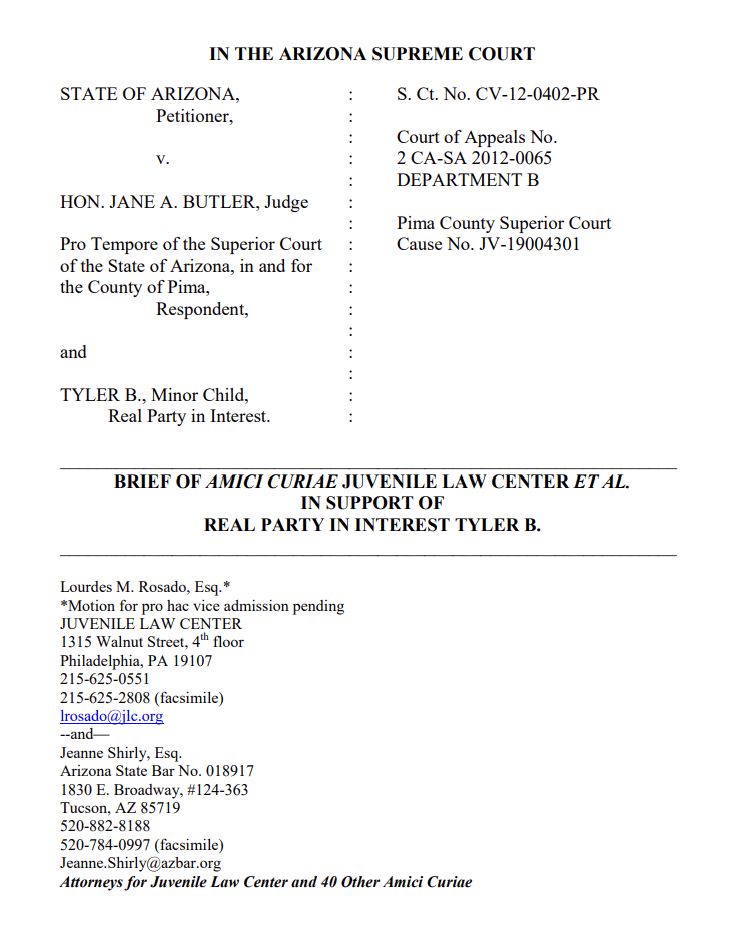
Summary of Argument
The trial court did not err in granting Tyler B.‘s motion to suppress evidence derived from a blood draw by a law enforcement official, as the official lacked a warrant and Tyler did not voluntarily consent to the search. An examination of the totality of the circumstances underlying the blood draw, when viewed through the eyes of a reasonable youth, demonstrates that Tyler‘s alleged consent to the search was not voluntarily given.
United States Supreme Court case law consistently affirms the principle that courts must take into account a youth‘s age, as well as other attributes of youth, to ensure that they are properly protected under the United States Constitution. For example, in J.D.B. v. North Carolina, 131 S. Ct. 2394, 2399 (2011), the Court held that a youth‘s age properly informs the analysis of whether a youth is in custody for purposes of Miranda v. Arizona, 384 U.S. 436 (1966). The J.D.B. Court reiterated that for constitutional purposes, ―children cannot be viewed simply as miniature adults.‖ Id. at 2404 (citation omitted). Courts must recognize the unique attributes of youth – for example, that they are more immature than adults and susceptible to coercion – when assessing whether their encounters with police pass constitutional muster. Id. at 2403. Similarly, this Court has held that to provide juveniles confronted by the police with the same level of Fifth Amendment protection afforded to adults, courts must recognize that youth are different from adults when assessing the voluntariness of their confessions. In re Andre M., 88 P.3d 552, 555 (Ariz. 2004) (en banc). The same principles apply with equal force here in determining the voluntariness of a youth‘s alleged consent to a search.
In the instant case, a sixteen-year-old was arrested, questioned, handcuffed and eventually subjected to a blood draw at school, after being held for two hours behind closed doors by five adults, including two law enforcement officers, while without access to his parents. Ample precedent in this and related areas supports a holding that Tyler‘s age and other circumstances must be considered in assessing if he voluntarily consented to the blood draw performed by law enforcement.